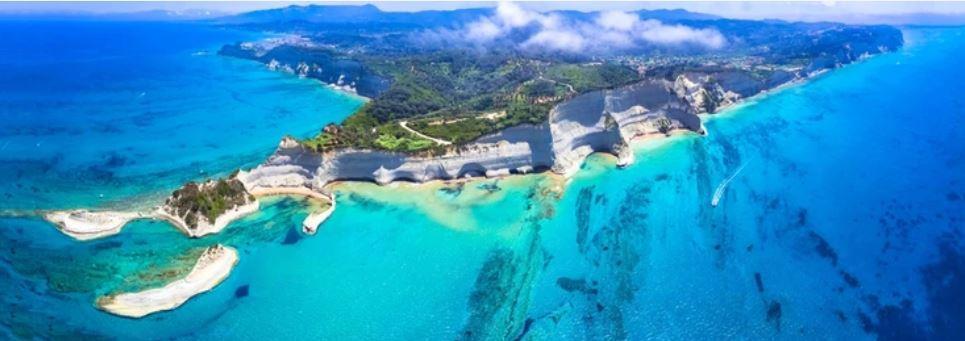
[Pitfalls


[Pitfalls
BUYER’S GUIDE
PAHAKI | BUYER’S AGENT | RE/MAX SPECIALISTS CRETE
Purchasing property in Greece can be an exciting opportunity, but it's important to be aware of potential pitfalls that could complicate the process. Here are some key pitfalls to avoid:
1.1
Unclear Titles: In Greece, especially in rural or less developed areas, property titles might not be clearly documented. This can occur due to inheritance laws, unregistered transactions, or communal land ownership practices. A clear title is essential to ensure that the seller has the legal right to transfer ownership to you.
Inherited Property Complications: Properties passed down through generations might have multiple heirs, some of whom might not even be aware of their ownership. This can lead to disputes after the sale.
1.2
Land Registry/Cadastre Issues: Some properties might not be properly registered in the Land Registry (Hypothikofylakion) or the newer Cadastre system (Ktimatologio). Incomplete or outdated registrations can cause legal issues and complicate the sale. Ensure the property is registered, and all information is accurate.
Implications: If a property is unregistered, it may not legally belong to the seller, or it might not be possible to legally transfer ownership. This could result in significant legal disputes.
1.3
Mortgages and Debts: Properties in Greece might have existing mortgages, tax debts, or other financial encumbrances attached to them. These can be transferred to the new owner if not resolved before the sale. Your lawyer should check for any liens, unpaid taxes, or other financial obligations tied to the property.
Legal Actions: Ensure there are no ongoing legal actions against the property, such as claims from third parties or pending lawsuits, which could jeopardize your ownership.

2.1
Additional Fees: Beyond the purchase price, buying property in Greece involves several additional costs. These include:
o Legal Fees: Typically 1% to 2% of the purchase price.
o Notary Fees: Around 1% to 1.5% of the property’s declared value.
o Property Transfer Tax: Generally 3% of the objective value.
o Agent Commission: Usually 2% to 5% of the sale price.
o Registration Fees: Around 0.5% to 0.7% of the property’s value.
o Surveyor/Engineer Fees: Vary based on the property's size and condition.
Utility Connection Fees: In some cases, especially with rural properties, you may need to pay for connections to utilities like electricity, water, or sewage systems.
Estimating Costs: Renovations can be costly in Greece, especially for older properties. Factors such as the age of the property, the materials used, and local building regulations can all influence costs. It’s important to get a detailed estimate from a reliable contractor before purchasing.
Unexpected Expenses: Renovation projects often reveal hidden issues such as structural problems, outdated wiring, or plumbing, which can significantly increase costs.
Maintenance: Regular maintenance of the property is essential, especially in coastal areas where salt air can cause corrosion, or in rural areas where seasonal weather can cause damage.
Property Tax (ENFIA): ENFIA is an annual property tax based on the objective value of the property. The rates can be higher in more desirable areas, and it’s an ongoing financial commitment.
Home Insurance: While not mandatory, it’s advisable to get home insurance, which is another ongoing cost to consider.

Coastal and Island Areas: Greece has strict zoning laws in certain areas, particularly in coastal zones, islands, and regions of historical or environmental significance. These laws may limit the type of construction, renovations, or usage allowed on the property.
Building Restrictions: Some areas have restrictions on building height, density, and style, especially in places with historical significance or natural beauty. Understanding these restrictions is crucial if you plan to build or renovate.
Unauthorized Extensions: It’s not uncommon to find properties with unauthorized extensions or modifications that don’t comply with local building codes. These could include additional rooms, swimming pools, or structural alterations that were done without the necessary permits.
Legalization Issues: The Greek government has, at times, offered amnesties to legalize unauthorized buildings or extensions. However, this process can be complicated and costly, and in some cases, it might not be possible to legalize the changes.

Border Zones: Non-EU citizens face restrictions when buying property in certain border zones and islands near Turkey, Albania, and other strategic areas. These restrictions are in place due to national security concerns. If you wish to purchase in these areas, you may need special permission from the Ministry of Defense, which can be a lengthy process.
Limited Permissions: Even if you receive permission, there may be additional conditions or restrictions on how you can use the property.
Golden Visa Program: Greece offers a Golden Visa program, which grants residency to non-EU citizens who invest at least €400,000 in real estate. This can be an attractive option if you plan to live in Greece or travel frequently within the Schengen Zone. (Please check the minimum investment that is required for the region you are interested in buying as the amount differs from region to region)
Tax Implications: Residency can also affect your tax status, potentially subjecting you to Greek tax laws on global income. It’s important to consult with a tax advisor to understand the implications.

5.1
Hidden Problems: Many older properties, especially in rural areas or on islands, may have structural issues that are not immediately visible. These can include foundational problems, termite damage, or issues related to earthquakes.
Surveyor’s Role: A professional surveyor or structural engineer can provide a detailed report on the property’s condition, identifying any potential problems that could lead to costly repairs.
5.2 Environmental Risks
Flood Zones: Some areas in Greece are prone to flooding, particularly near rivers or low-lying coastal areas. It’s important to check whether the property is in a floodprone area.
Forest Fire Risk: Properties near forests or in rural areas might be at risk of wildfires, which are common in Greece during the summer months. Ensure that the property has adequate fire prevention measures.
Earthquake Zones: Greece is located in a seismically active region, and earthquake risk varies across the country. Properties in high-risk areas should be inspected for earthquake-resistant construction.

6.1
Greek Documents: All legal documents, including the purchase contract, will be in Greek. Misunderstandings can easily occur if you rely solely on translations. Having a bilingual lawyer who can explain the documents and negotiations in your language is crucial to avoid any misinterpretation.
Local Terminology: Even if translated, legal and real estate terminology can be complex. Ensure you fully understand all terms and conditions before signing any agreements.
Preliminary Agreement: The preliminary agreement, or pre-contract, typically involves a deposit (usually 10%) to reserve the property. Ensure that the terms of this agreement are clear, particularly regarding what happens to the deposit if the sale falls through.
Non-Refundable Deposits: In Greece, deposits are often non-refundable if the buyer pulls out of the deal without a valid reason. However, if the seller withdraws or there are legal issues with the property, the deposit should be refundable. Ensure these terms are clearly stated in the contract.

7.1
Tourist Areas: Property prices in popular tourist destinations can be significantly inflated, especially during peak seasons. Research comparable sales in the area to ensure you’re paying a fair market price.
Agent’s Advice: Work with a reputable local agent who knows the market well and can negotiate on your behalf. Avoid being pressured into making a quick decision, and don’t hesitate to walk away if the price doesn’t seem right.
Objective Value: The objective value (antikeimeniki axia) is the government’s assessed value of the property for tax purposes, often lower than the market value. It’s used to calculate taxes like the property transfer tax and ENFIA.
Market Value: The market value is what the property can actually sell for, which is usually higher than the objective value. Be aware of the difference and ensure that you understand how both values affect the transaction.

8.1
Tax Calculation: The property transfer tax is typically 3% of the objective value of the property. It must be paid before the final contract is signed. Ensure this is calculated correctly and that you budget for it in advance.
Tax Filing: Your lawyer will help file the necessary paperwork with the tax office, but it’s your responsibility to ensure the tax is paid on time to avoid delays in the purchase process.
ENFIA: This annual property tax is based on the objective value of the property. It can be a significant ongoing cost, especially for high-value properties or properties in prime locations. Make sure you understand how much you’ll need to pay each year and budget accordingly.
Payment Schedules: ENFIA is usually payable in installments throughout the year. Missing payments can result in penalties, so it’s important to stay on top of these obligations.
Rental Income Tax: If you plan to rent out your property, be aware that rental income is subject to Greek income tax. The tax rate varies depending on the amount of rental income and whether it’s your primary residence or an investment property.
Reporting Requirements: You’ll need to report your rental income to the Greek tax authorities and pay any taxes due. Failure to do so can result in fines and penalties.

9.1
Currency Impact: If you’re buying property with a foreign currency, exchange rate fluctuations can significantly impact the final cost. For example, if the value of your currency falls against the euro between agreeing on a price and completing the purchase, you could end up paying more than expected.
Financial Products: Consider using financial products like forward contracts to lock in a favorable exchange rate. These can help protect you from unfavorable currency movements and ensure that your budget remains intact.
Emotional Decisions: It’s easy to get caught up in the excitement of buying a property in Greece, especially in desirable locations. However, rushing the process can lead to overlooking important details such as legal issues, property conditions, or financial obligations.
Taking Time: Ensure that you have enough time to conduct thorough due diligence, negotiate the best price, and understand all legal and financial aspects of the transaction before committing.
Price Fluctuations: Property prices in tourist areas can vary depending on the season. For example, prices might be higher during the summer when demand is at its peak. Consider looking at properties during the off-season when there’s less competition and potentially lower prices.
Availability: Some properties may not be listed during the high season, so exploring the market year-round can give you a better understanding of what’s available and at what price.
By carefully considering and addressing each of these potential pitfalls, you can protect yourself from common mistakes and ensure a smooth, successful property purchase in Greece. Engaging experienced professionals, doing thorough research, and taking a methodical approach will help you make an informed and confident decision.
At RE/MAX we are at your disposal for any cooperation in property assignments or requests, as well as for any questions and advice regarding the buying, selling, or leasing of your property. We have a large number of properties of all types (residential, vacation homes, commercial and investment properties, land). REMAX Specialists is a member of REMAX, the world's largest international real estate network with over 9,000 offices in more than 110 countries and more than 147,000 associates. Get in touch so that we can find the property you truly desire!
6 Ethnikis Antistaseos str, Heraklion
Personal Phone Number: +30 6945253645
Office Phone Number: +30 2814 004848
Private email: renapahaki@gmail.com
Office email: remaxheraklion@gmail.com
92 Eleutheriou Benizelou str Chania
Office Phone Number: +30 28210 58833
Email: info@remax-specialists.gr
www.remax-specialists.gr

